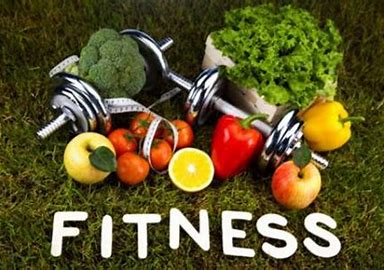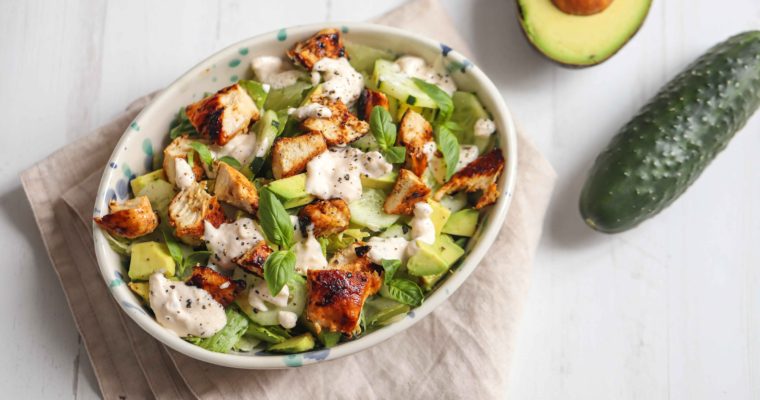Myth ‘Eating Past 6pm is Bad For You’
The truth: Our body doesn’t store more calories just because it’s later in the day, however ideally you should aim to have your last main meal around 2-3 hours before bedtime to avoid indigestion. Eating late at night isn’t problematic if you are truly hungry, however it may be problematic if you are snacking on high fat or sugary foods out of boredom and subsequently eating too many calories over the course of the day.
Myth ‘Saturated Fat is Bad For You’
The truth: If you replaced saturated fat with refined (stripped of nutrients) carbohydrates including sugary, nutrient-poor foods such as biscuits, sweets, and fizzy drinks then the disease risk increases i.e if you tell people to eat less fat then they may eat more refined carbohydrates. Saturated fat is found in animal products such as meat, butter, eggs and full fat dairy, and although it may not be bad for us, too much isn’t good for us either; saturated fat seems to have both good and bad traits when it comes to our cholesterol levels. Saturated fat also contains a lot of calories and excess calories from any food can still cause weight gain, which is not good for our overall health.
Myth ‘You don’t need to detox to get rid of Toxins’
The truth: Our bodies are constantly ‘detoxing’ i.e filtering out waste products from bodily functions, toxins such as alcohol and chemicals from pollution. Several organs are involved in detoxing our bodies and thy include our skin, intestines, liver and kidneys. Keeping our bodies in tip top shape is essential for staying fit and well; a healthy diet, staying hydrated, keeping active, not smoking and adequate sleep are all essential to keeping our bodies in working order and detoxing for us!
Typical detox diets that promote an extreme restriction of calories and eliminating food groups are not only necessary but are likely to result in weight loss followed by regain, and even worse, a return to old (poor) eating habits. Going on a restrictive eating plan doesn’t trend to promote healthy habits and if you restrict calories too much then you may not have the energy you need to perform daily activities.
Myth ‘You must eat low-fat or diet-labelled food to lose Weight’
The truth: Don’t let marketing ploys fool you; a healthy biscuit is still a biscuit and may contain as many calories and as much sugar as the standard version, especially if you eat a few of them! Always check out the ingredients list before you buy and remember a salad may be healthy, but it’s loaded with creamy and sugary dressings, then it could contain more calories than your friend’s burger. Focus on eating whole-foods, and if you do buy packaged food make sure to read the nutrition label first.
Myth ‘Eating Bread Causes Weight Gain’
The truth: There is no such thing as good and bad foods, just good and bad diets, and this applies to bread too. Bread only causes weight gain if you eat too much of it and/or smother it in lashings of butter; because you’ll simply be eating more calories. Seeded bread is a source of wholegrain goodness, which helps to reduce our risk of current cancer, as well as keep our digestive systems moving. Seeded and rye bread also have low GI (glyceamic index) meaning they release their energy slowly. Having a couple of slices of bread with an olive-oil based spread plus a healthy filling such as tuna and salad is an ideal lunch option.
Myth ‘You should eat when you feel hungry’
The truth: There are three types of hunger; stomach hunger, head hunger and heart hunger, and only one of these (stomach hunger) should lead to eating food on a regular basis. Stomach hunger can be controlled or managed by eating regular meals, staying hydrated and eating a balanced diet i.e with a sufficient amount of fibre, protein and healthy fats. The key is to avoid becoming over-hungry.
Head hunger (cravings) and heart hunger (emotional eating) on the other hand will not be solved by eating; feelings may be temporary pacified, however the underlying feelings of boredom, sadness, anger or stress will still be there unless they are dealt with head on.
Myth ‘Using Coconut Sugar Makes Baked Goods Healthier’
The truth: At a molecular level, sugar is sugar and although coconut sugar releases its energy slightly slower than cane (refined) sugar, and it contains a few more nutrients, it still contains the same amount of calories – and contains relatively few nutrients in comparison to foods like fruit and vegetables. Coconut sugar also contributes to dental cavities, just like regular sugar, which means that it shouldn’t be consumed in copious amounts; sugar is sugar unfortunately, whatever type you choose to use in a baking recipe.
Myth ‘Cardio is better than Weights’
The truth: Studies show that lifting weights is one of the most effective exercise strategies for gaining muscle and increasing metabolic rate. It also improves overall body composition and boosts fat loss. Aim for a combination of cardiovascular (aerobic) exercise as well as resistance exercise during the week.
Myth ‘An hour on the treadmill is always better than a quick 15 minutes’
The truth: Many people believe that if they slog away on the treadmill for an hour they will lose the optimum amount of weight. This is not always the case. An alternative option is high-intensity interval training (or HIIT). Exercise is carried out at a low or moderate intensity with the caveat that several short bouts of high-intensity, often ‘all-out,’ exercise are included. It is consider to be more time-efficient and research shows this type of exercise can bring about rapid beneficial changes in metabolic function as well as reduction in body fat.
Myth ‘You need to have Protein straight after a Workout’
The truth: It was once though you need to have protein within 30 minutes after a workout, however research now suggests that the post-exercise ‘anabolic window’ of opportunity’ to take on board protein maybe wider than once thought. The main factor to consider isn’t how quickly you consume protein after a workout, but how much protein you consume over the course of the day.
After your workout, your body tries to rebuild its glycogen stores as well as repair and regrow those muscle proteins. Eating the right nutrients soon after you exercise can help your body get this done faster. It’s especially important to eat carbs and protein after your workout.
Each macronutrient — protein, carbs, and fat — is involved in your body’s post-workout recovery process. That’s why it’s important to have the right mix.






Good day! I just wish to give you a huge thumbs up for your excellent information you have got here on this post. I am coming back to your blog for more soon. Good day! I just wish to give you a huge thumbs up for your excellent information you have got here on this post. I am coming back to your blog for more soon. נערות ליווי בחולון